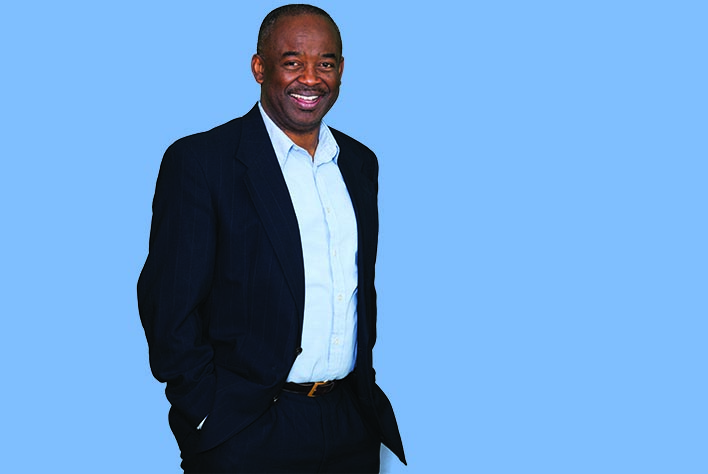Raymond Okuagu, the owner of Premier Engineering Consultants, is the first to admit that he’s always thought of himself as an engineer first and a businessman second.
But he’s shifting his thinking, thanks to ScaleUP! Kansas City, a free program offered by the UMKC Innovation Center and the U.S. Small Business Administration. Okuagu was one of 15 business owners chosen for the program’s inaugural class this spring.
As part of ScaleUP!, entrepreneurs receive training on critical business skills and work with coaches to identify opportunities for growth. ScaleUP! wants to help these companies “get over the hump” and earn more than $1 million in annual revenue.
Okuagu is an expert when it comes to structural and design engineering. But he needed ScaleUP! to give him fresh ideas about running the business itself, he said.
That’s why he was so eager to participatein the program.
“Any opportunity I see to improve my business skills—I jump on it,” Okuagu said.
Here’s what he learned from ScaleUP!
You Can’t Outsource Financial Leadership
Okuagu laughs now when he thinks about how he used to handle his company’s finances: He let someone else do it. He was just too absorbed in the engineering side of the business to take time for it.
Luckily, his accountant was excellent. But Okuagu wasn’t paying enough attention to the reports that were being generated. ScaleUP! taught him to take a closer look and truly understand every last detail of the company’s financials.
“As the CEO of your company, you need to understand the financials,” he said. “If you have no money or your financials are in the tank, you don’t have a business.”
Thanks to closer reviews of his financials, Okuagu and his coaches were able to quickly identify several changes to make.
ScaleUP! also provided him with a template to regularly check his financial performance. That way, he can make quick adjustments as his company continues to grow.
You Can Almost Always Improve Your Marketing
Okuagu always prided himself on his pursuit of new work. After all, he religiously sets aside time every day to look for new projects and reads every last request for proposal from the world of construction.
“It’s like my coffee,” he said. “Once something is out on the street, we’ve got to put our team together.”
Yet ScaleUP! pointed out that he was overlooking a major marketing tool. The Premier Engineering website hadn’t been updated since 2008. It didn’t include some of the firm’s important recent projects, such as structural design work at Arrowhead Stadium and an apartment complex in Stamford, Conn.
Okuagu had essentially ignored Facebook, Twitter, LinkedIn and other social media altogether. He plans to change that soon.
‘You’ve Got to Have Relationships’
When Okuagu dives into social media, he’ll have a lot to talk about.
Premier Engineering Consultants has undertaken numerous high-profile projects, including structural design work at the Sprint Center, design of the Three Trails Bridge and quality control projects for the Kansas City streetcar line and the Missouri Department of Transportation.
It’s a big change from a few years ago. Like many in the industry, Premier Engineering Consultants struggled after the economic crisis in 2008. Projects dried up, and Okuagu had to cut staff positions to keep the company going.
One thing that saved Okuagu was his strong relationships with large engineering firms. Okuagu, who emigrated from Nigeria more than 30 years ago, built those relationships in part from his impressive resume and reputation. He’s worked everywhere from the Fleming Corporation and the Missouri Department of Transportation to Butler Manufacturing and Burns & McDonnell.
When he left Burns & McDonnell to become an entrepreneur, it wasn’t because he had ill feelings about the company.
“I couldn’t have asked for a better job at the time,” he said. “The boss was great.”
Something else spurred the decision.
“It was something that came from inside,” he said. “It was my dream, my passion.”
Okuagu kept in close contact with former colleagues and, in part, used those good relationships and his engineering reputation to keep his company afloat during rough years.
Relationships, he said, are key in the engineering world, where developers like to see a team of experts—small and large firms—working together to get the best minds on projects.
As for the future, Okuagu knows those relationships will carry his business into the next level of growth. Right now, he’s working with two major corporations on a bid to win a billion-dollar construction project.
“You’ve got to have relationships,” he said “We don’t call it competition. We team up and work with them as a team. That said, you’ve got to know your stuff. Reputation is everything.”

